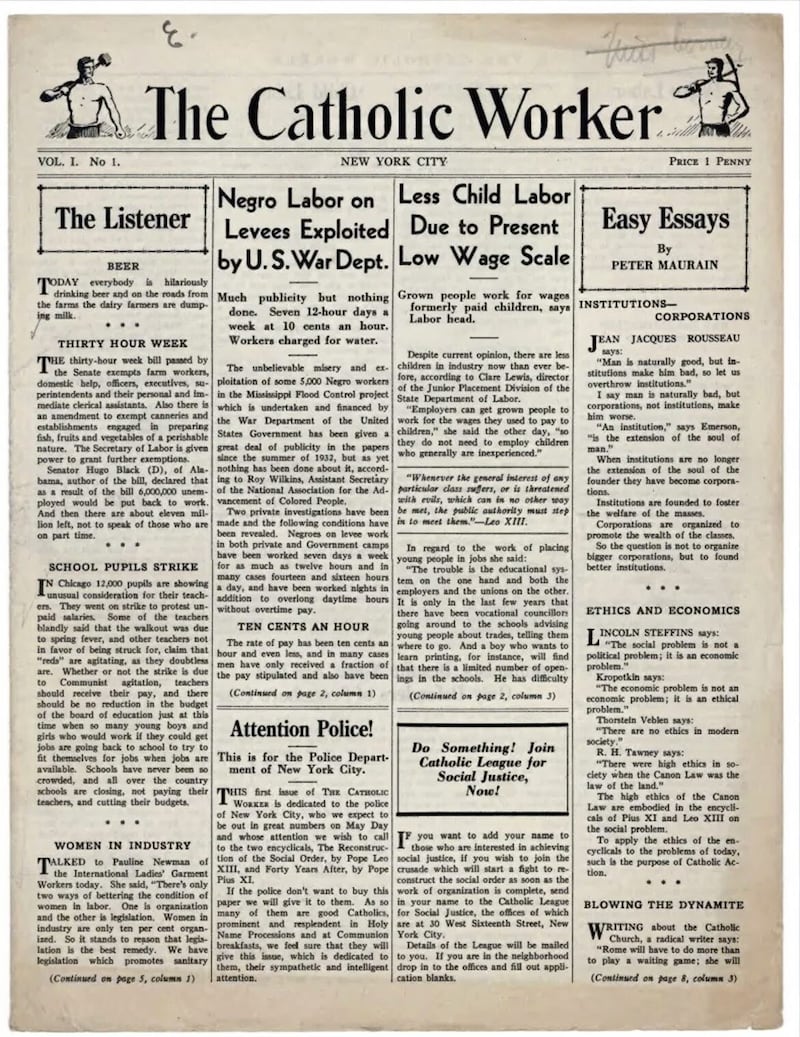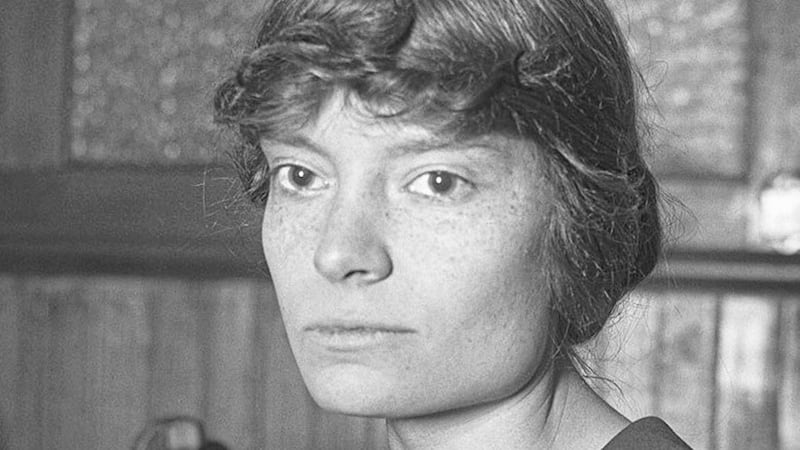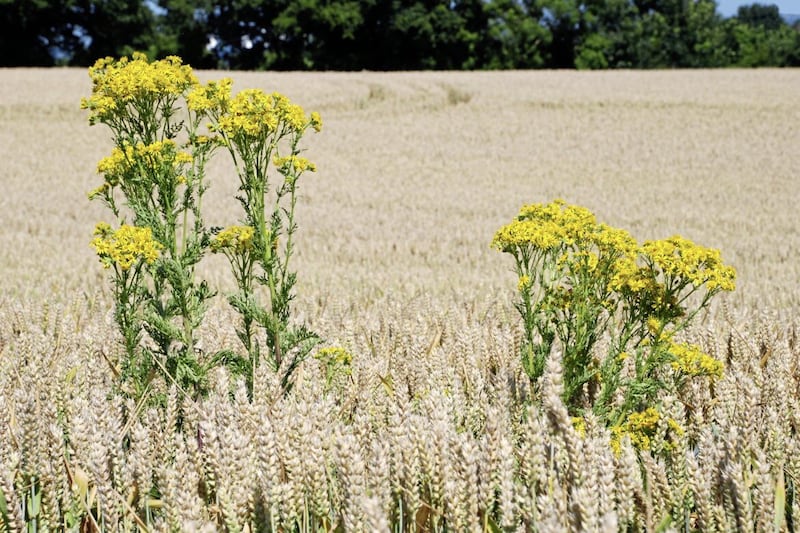The Catholic Worker Movement was founded in 1933 by Peter Maurin, a French peasant thinker, and Dorothy Day, a former Communist activist and Catholic convert.
On May Day of that year, Dorothy and a few youthful supporters went into New York's Union Square and sold for a penny a copy the first edition of The Catholic Worker paper.
It is now 90 years since that event and the paper still sells for a penny a copy. I've been getting my copy mailed to me since I was ordained, 50 years ago.
Peter Maurin – a Catholic, highly intelligent and well read in all aspects of theology, philosophy, politics and sociology – was 20 years older than Dorothy. He brought to her work a programme of radical social reform that was quite distinct from the ideas of her Marxist friends.
He showed that concern for the poor and underprivileged sprang directly from the Gospels. His ideas were practical and he brought coherence and direction to Dorothy's passionate concern.
"Peter Maurin," Dorothy wrote, "is most truly the founder of the Catholic Worker Movement. I would never have had any idea in my head about such a movement if it had not been for him."
Along with Peter, Dorothy established houses of hospitality, providing shelter and food for the poor and downtrodden. Today, there are over a hundred such houses in practically every major American city. Given the current economic climate there, their presence has never been more necessary.
Read more:Fr Gerry McFlynn: The prisons we deserve
Read more:Fr Gerry McFlynn: Turning swords into ploughshares still prophetic work
Read more:The Catonsville Nine, the Vietnam War and the power of protest as prayer
Following her conversion to Catholicism, Dorothy continued with her non-violent protests on behalf of people who were suffering and was arrested more times than I've had hot dinners.
She never quite abandoned her fierce political and anarchist activism and continued to protest warfare, the arms race, unemployment, discrimination and exploitation right up to the end. The FBI even had her on its list of people to watch because of her political and social activism.
At the time of her death in 1980, she was one of the best known political activists in the USA. Not surprisingly, Pope Francis included her in his list of the four great Americans (along with Abraham Lincoln, Martin Luther King Jr and Thomas Merton) when he visited the United States in 2015.
Dorothy is currently being considered for sainthood in the Church – something she would be very unhappy about. She once said in response to a comment about sainthood: "Don't call me a saint. I don't want to be dismissed so easily."
I have long admired the Catholic Worker approach to life. Its mixture of spirituality and political activism reminds me of the early Church as it grappled with the large print of the words of Jesus before it became an institution with the trappings of power and privilege. To call the Catholic Worker a 'movement' is perhaps to limit its influence. It is more a way of life based on 'The Way' of those first Christians.
Down the past nine decades it has played an important role in the lives of countless people of all religions and none. In our own time, it has greatly influenced the lives of such iconic figures as Thomas Merton, Jim Forest, the Berrigan brothers and an endless list of peacemakers as well as organisations such as Pax Christi and the The Fellowship of Reconciliation.
For Dorothy and Peter, prayerful reflection about the state of the world led automatically to the streets for protest and non-violent direct action, even civil disobedience. How we need such a theology today given the state of our world; a theology of resistance, one might call it.

Dorothy went deeper and called it "The permanent revolution of the heart".
"It is a permanent revolution, this Catholic Worker Movement," she said.
"The great challenge of the day is how to bring about a revolution of the heart, a revolution which has to start with each one of us.
"When we begin to take the lowest place, to wash the feet of others, to love our brothers and sisters with that burning love, that passion, which led to the cross, then we can truly say, 'Now I have begun'."
The Catholic Worker Movement challenges us to believe that the mystery of the Gospel is that we are called to live in a certain way even if the social or political change worked for is unlikely or even impossible.
Maybe it's also part of the mystery that the only way we can make the future different is by living the present differently.
:: Fr Gerry McFlynn is a Down and Connor priest and project manager of the Irish Council for Prisoners Overseas
:: catholicworker.org








